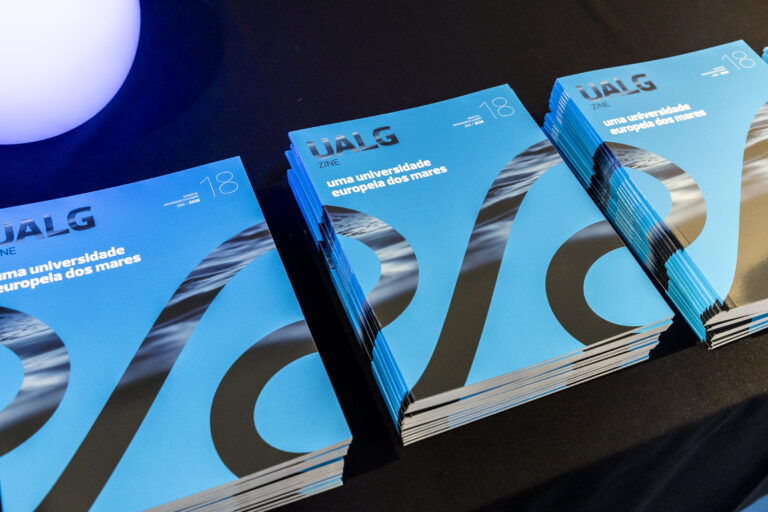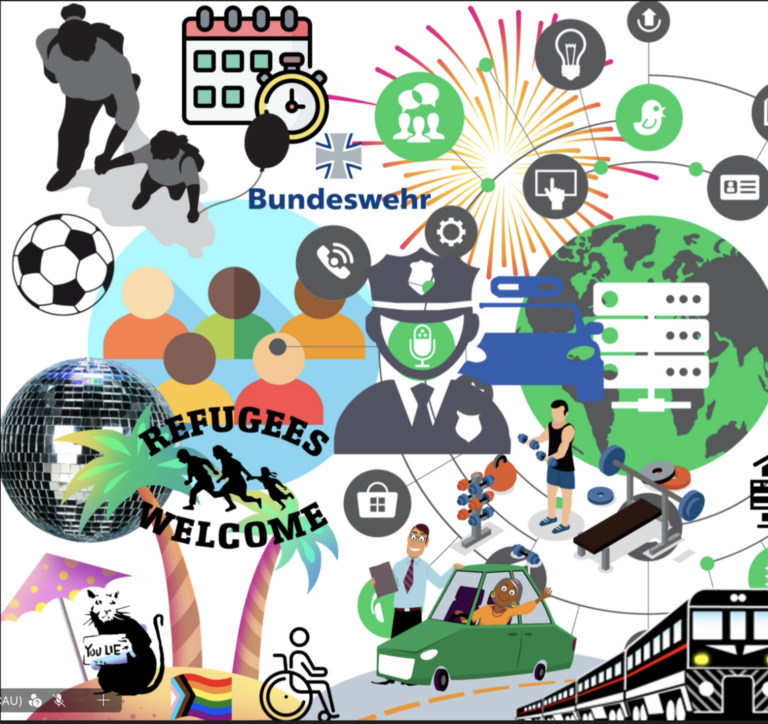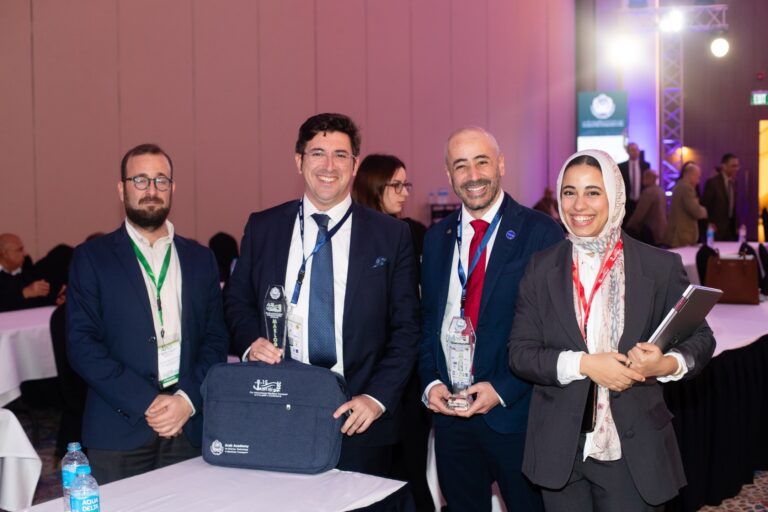Six projects from across Kiel University, involving a total of six other SEA-EU partner universities, receive funding to strengthen international research collaborations.
With research topics covering best practices in medical education, open science, archaeology and plant and soil science, the six projects awarded with funding from this year’s SEA-EU Seed Fund for research represent a diverse cross-section of Kiel University’s research profile. The Seed Fund, now in its second year, offers researchers of all disciplines at Kiel University the opportunity to build and strengthen links with scientists based at other SEA-EU partner universities. Successful projects receive a maximum of 5000 Euros to explore new collaboration opportunities or build upon already established links; formats include workshops and network research initiatives.
“We’re very pleased to see such a wide variety of disciplines and topics represented within this year’s list of awardees,” says Linda Piálek, Head of the EU and international grants office at Kiel University, who coordinated the call and selection process. “We’re also happy to see the extended network of partner universities involved in the awarded projects” she adds. “The SEA-EU research fund is a great opportunity for early career researchers to explore collaboration possibilities. The variety and diversity of the successfully awarded projects as well as the number of partners we see involved this year, shows the increasing appreciation the role this relatively small grant can play in kick-starting a larger initiative or collaboration.”
The SEA-EU Seed Fund offered to members of Kiel University is part of an Alliance-wide initiative to foster more research collaboration across the SEA-EU network, especially among early career researchers.
The Projects:
Name: Sensing Seagrass: Characterizing Coastal Habitats in the Baltic Sea
Project Lead at Kiel University: Natascha Oppelt, Department of Geography, Faculty of Mathematics and Natural Sciences
Collaboration Partner(s): Agata Weydmann-Zwolicka, University of Gdańsk
Seagrass meadows are globally threatened, yet they serve as biodiversity hotspots, essential breeding ground, and provide coastal protection and carbon storage. Despite their importance, traditional mapping methods remain limited in scale and efficiency, while satellite-based Earth Observation (EO) approaches are hampered by a lack of standardized data, preventing region-wide monitoring in the turbid waters of the Baltic Sea. This project will bridge this gap by collecting essential calibration and validation data for EO-based seagrass mapping and monitoring at two key Baltic sites: Kiel (Germany) and in Puck Lagoon/Bay (Poland). The team will conduct coordinated field campaigns to map seagrass meadows in-situ with the research vessel Oceanograf, and deploy multispectral drones for high-resolution benthic habitat assessment. Water samples will be collected and analyzed for optically active constituents to characterize water column properties. Early career researchers will lead fieldwork and analysis, advancing their PhD projects and building long-term collaborative capacity. In Kiel, the project will be handled by PhD candidate Eike Schütt who will work alongside a PhD student from the University Gdańsk. This initiative builds on previous joint activities and lays the foundation for future European-scale seagrass mapping with SEA-EU partners.
Name: Open Science Capacity Building in Times of AI: Finding solutions
Project Lead at Kiel University: Julia Priess-Buchheit, Institute of Education, Faculty of Arts and Humanities
Collaboration Partner(s): Ana Marusic, University of Split; Raelene Church, University of Malta; Ivan Buljan, University of Split.
A collaborative SEA-EU workshop will be organised in Kiel in October 2025 with the aim of fostering capacity building in Open Science (OS) across the alliance, focusing on challenges and opportunities at the intersection with Artificial Intelligence (AI). The initiative will leverage the Open Science Learning GATE (GATE), a community-based infrastructure supporting evidence-informed OS capacity building. The workshop’s core objective is to co-create a SEA-EU Capacity Building Roadmap. This will be done by 1) engaging SEA-EU partners prior to the workshop via GATE to collect perspectives on OS and AI, 2) collectively interpret the GATE data during the workshop to identify community-based training needs and shared capacity-building challenges. 3) a roadmap with concrete, community-based actions will then be designed to embed OS standards and practices in training and institutional policies across SEA-EU universities. The outcomes will be the first step towards a long term project on OS capacity building with national funding support and informing the SEA-EU Alliance on effective OS capacity building.
Name: Nurse Education Network
Project Lead at Kiel University: Wolfgang von Gahlen-Hoops, Institute for General Medicine, Faculty of Medicine
Collaboration Partner(s): Marcel Köhler, NORD University
The “Nurse Education Network” initiative aims to build a sustainable network of nurse educators and researchers within the SEA-EU alliance who are engaged in interprofessional education (IPE), simulation-based learning (SBL), and digital teaching innovations. The project responds to the growing demand for collaborative, patient-centered education models in nursing that leverage digital tools and simulation technologies to enhance interprofessional and digital competence among future nurses. The project will include a digital kick-off meeting in September 2025 introducing the participants, topics and identifying synergies, moderated digital roundtable sessions focussing on specific themes, as well as a face-to-face workshop in early 2026 to finalise collaborative research outlines and prepare joint future funding proposals. A final digital report will be produced will be completed after the workshop.
Name: Archaeological Survey Autumn School: Carissa Aurelia
Project Lead at Kiel University: Janine Lehmann, Institute of Classics, Faculty of Arts and Humanities
Collaboration Partner(s): Darío Bernal-Casasola, University of Cádiz
A three-week Autumn School is planned in the autumn of 2025 and will enable six archaeology students from the partner universities of Cádiz and Kiel to work together on the ancient Carissa Aurelia site and its surroundings. The programme is enriched with lectures on the region and related research. Since 2024, the site has been the object of intensive archaeological research as a joint international project (Kiel, Groningen, Cologne, Seville) using a multi-methodological approach. This was preceded by research at the site by the University of Cádiz, which also has an archive of the old excavations currently under investigation. A workshop on “Carissa Aurelia and its microregion” was organised at the beginning of 2025 with the help of the SEA-EU Seed Fund which promoted and strengthened networking between the archaeological institutes of Cádiz and Kiel and led to synergy effects with further ideas for cooperation. One important result was to promote student exchange through participation in our field research projects: Carissa Aurelia is already a learning site for archaeological methods and international cooperation for students, now enhanced with the participation of students from Cádiz. This will significantly strengthen the connection between the SEA-EU partners Cádiz and Kiel.
Name: Climate and Crop Rotation Shape Wheat Rhizosphere Microbiomes Across Different European Agroecosystems
Project Lead at Kiel University: Mehdi Rashtbari, Department of Soil and Plant Microbiome, Institute of Phytopathology, Faculty of Agricultural and Nutritional Sciences
Collaboration Partner(s): Diogo Neves Proenca, University of Algarve
Soil microbial communities are key to sustainable agriculture, influencing nutrient cycling, plant health, and ecosystem resilience. In the face of climate change and growing food demand, it is crucial to understand how farming practices and environmental conditions shape soil microbial communities and their functions. This project investigates how agricultural management and climate jointly shape the structure and function of rhizospheric microbial communities in wheat systems. Focusing on two key drivers—crop rotation history and contrasting climatic zones in temperate Germany and Mediterranean Portugal—the team aim to understand impacts on soil microbial diversity, biomass, enzyme activity, and functional potential. The project also serves as a platform for future collaboration through co-publications, student training, and joint research proposals, while deepening institutional ties between Germany and Portugal. The team also hope their work will contribute actionable knowledge toward climate-resilient, microbially-informed farming practices across European wheat systems.
Name: Exploring Halotolerant Plant-Associated Bacteria from Coastal Ecosystems for Sustainable Agriculture
Project Lead at Kiel University: Bahar Razavi, Department of Soil and Plant Microbiome, Institute of Phytopathology, Faculty of Agricultural and Nutritional Sciences
Collaboration Partner(s): Dorota M. Krzyzanowska, University of Gdańsk
This project initiates a research collaboration between Kiel University and the University of Gdańsk, focusing on the isolation and characterization of halo-tolerant rhizosphere and endophytic bacteria from native coastal plants. These microbes are known to enhance plant growth under saline conditions and are highly relevant to sustainable agriculture in the context of increasing soil salinization and climate stress. The project includes a joint sampling campaign in coastal areas near Gdańsk, targeting native halophytic species commonly found in saline marshes and coastal wetlands of northern Poland. These species have been reported in ecological and microbiological studies as tolerant to high salinity and as suitable hosts for plant-growth promoting bacteria. This has been followed up by laboratory-based microbial characterization both in Gdańsk and Kiel. Field and lab activities will be designed to promote skill exchange and methodological harmonization. Additionally, the project will support a Master’s student at the University of Gdańsk, a PhD student from Kiel University, and facilitate mutual visits for training and knowledge-sharing, including a potential presentation by the Polish partner at CAU’s Institute of Phytopathology.



